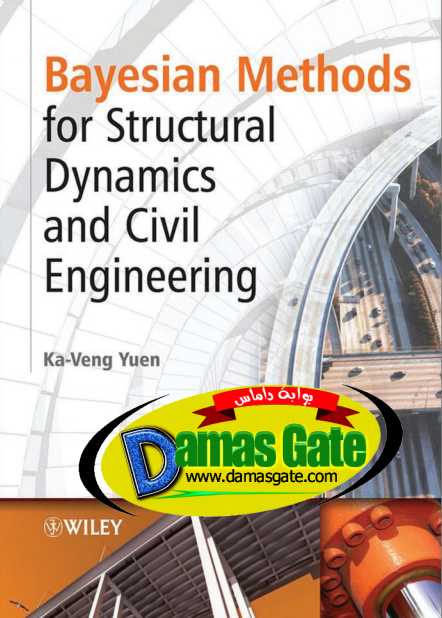Bayesian Methods for Structural Dynamics and Civil Engineering

Preface
Bayesian inference is a statistical process that quantifies the degree of belief of hypothesis,
events or values of parameters. Many Bayesian methods have been developed in various
areas of science and engineering, especially in statistical physics, medical sciences, electrical
engineering, and information sciences, etc. Since there are many types of modeling and parametric
uncertainty in civil engineering problems, Bayesian probabilistic methods are useful
in the estimation of uncertain parameters and quantification of the associated uncertainties.
For example, loadings, such as earthquake ground motion or complete wind pressure profile,
cannot be predetermined at the structural design stage. It is also difficult to determine to a
very precise level the mechanical properties for some materials, e.g., concrete, rock and soil,
etc. Hourly/daily emission rates by vehicles and factories are uncertain. It is also difficult to
obtain the spatial distribution of the air quality information in the nearby region. Otherwise, the
transportation of air pollutants can be modeled. Furthermore, the meteorological conditions
including wind speed, wind direction and rainfall of the day for prediction are also uncertain.
These are important factors for modeling the pollutant flow and also for determination of dam
design capacity. Traffic loads are also uncertain. These are just some of the civil engineering
examples for which Bayesian probabilistic methods are applicable.
Download
http://s18.alxa.net/s18/srvs2/02/001...ngineering.rar